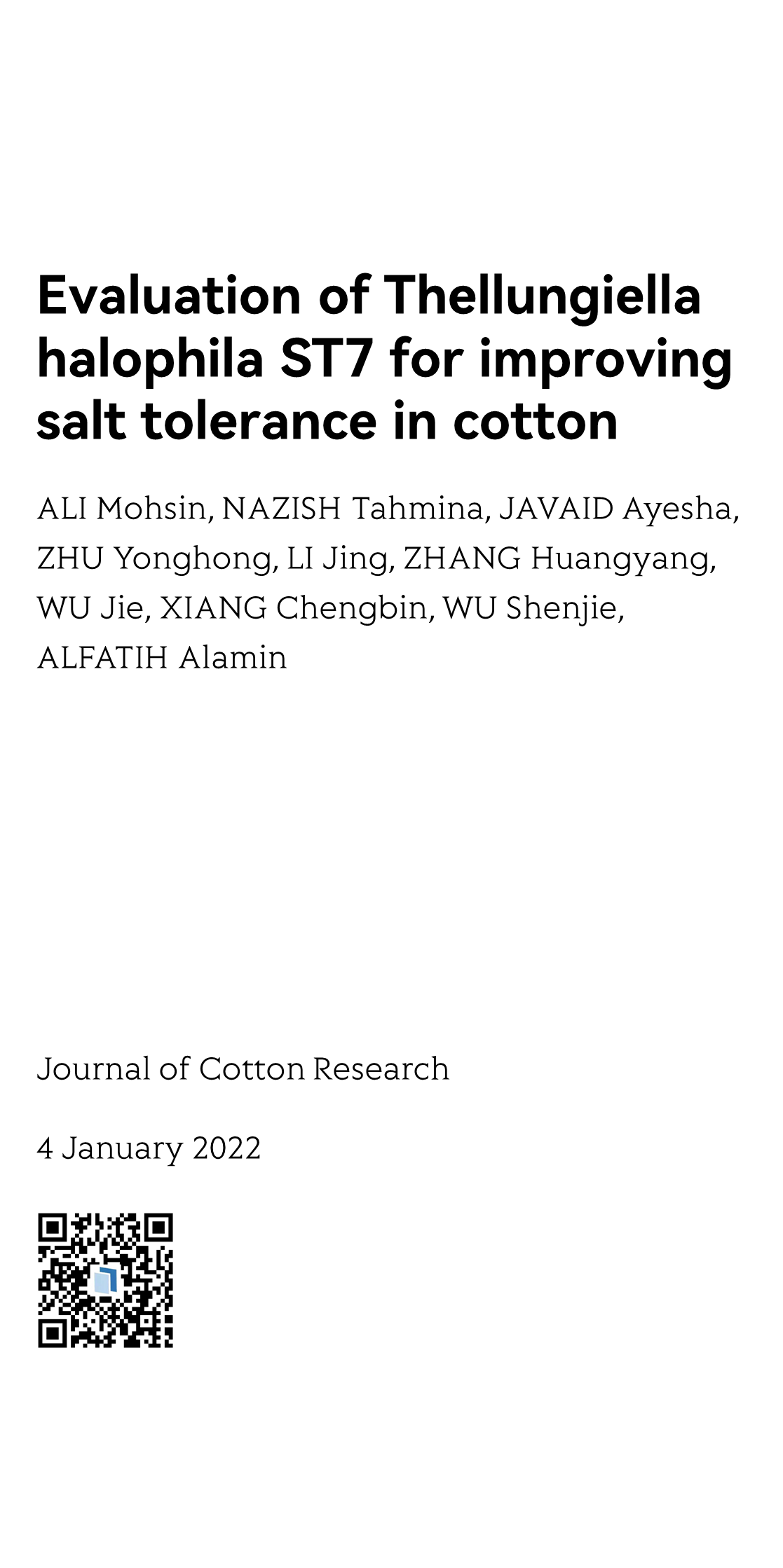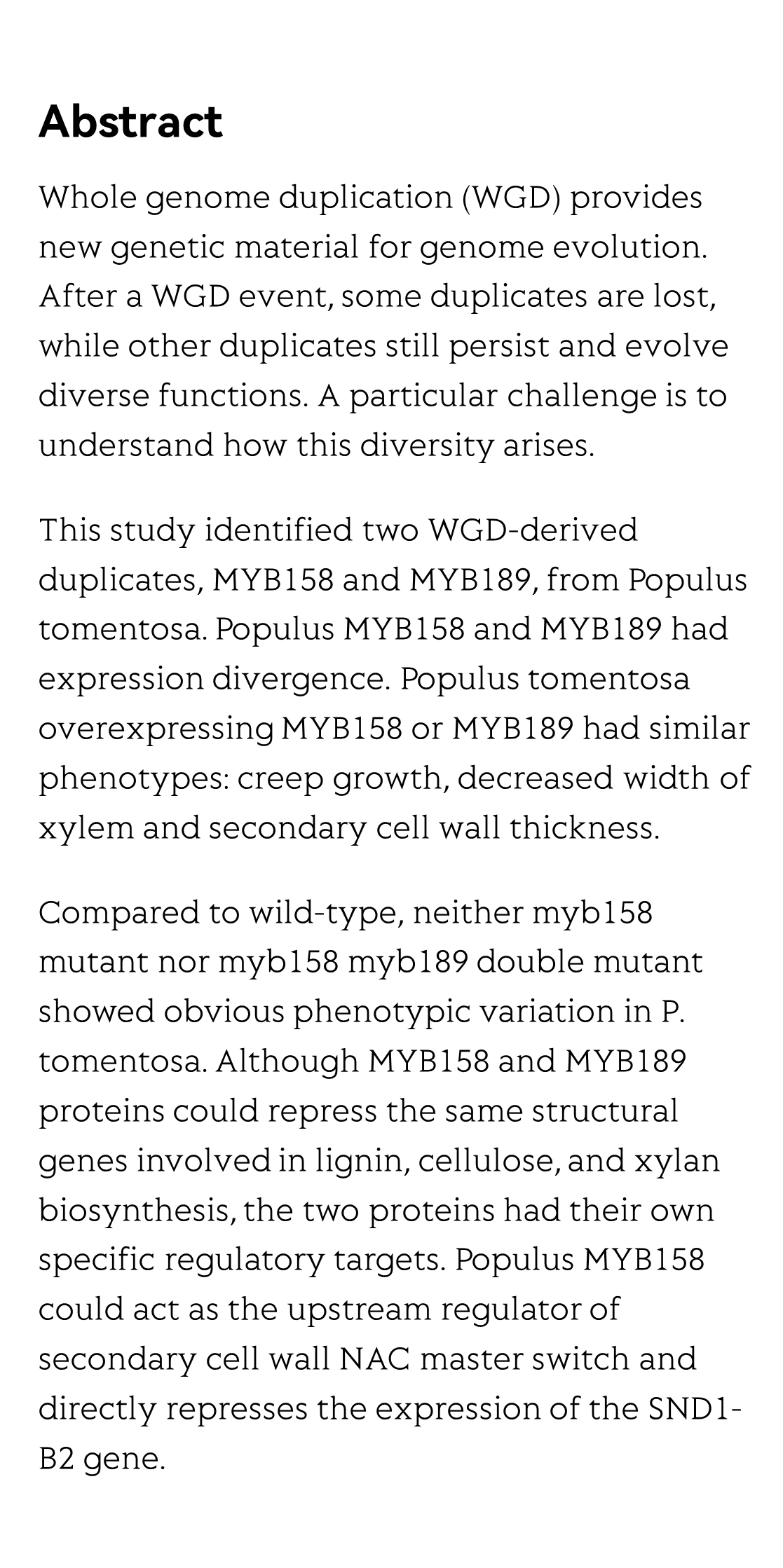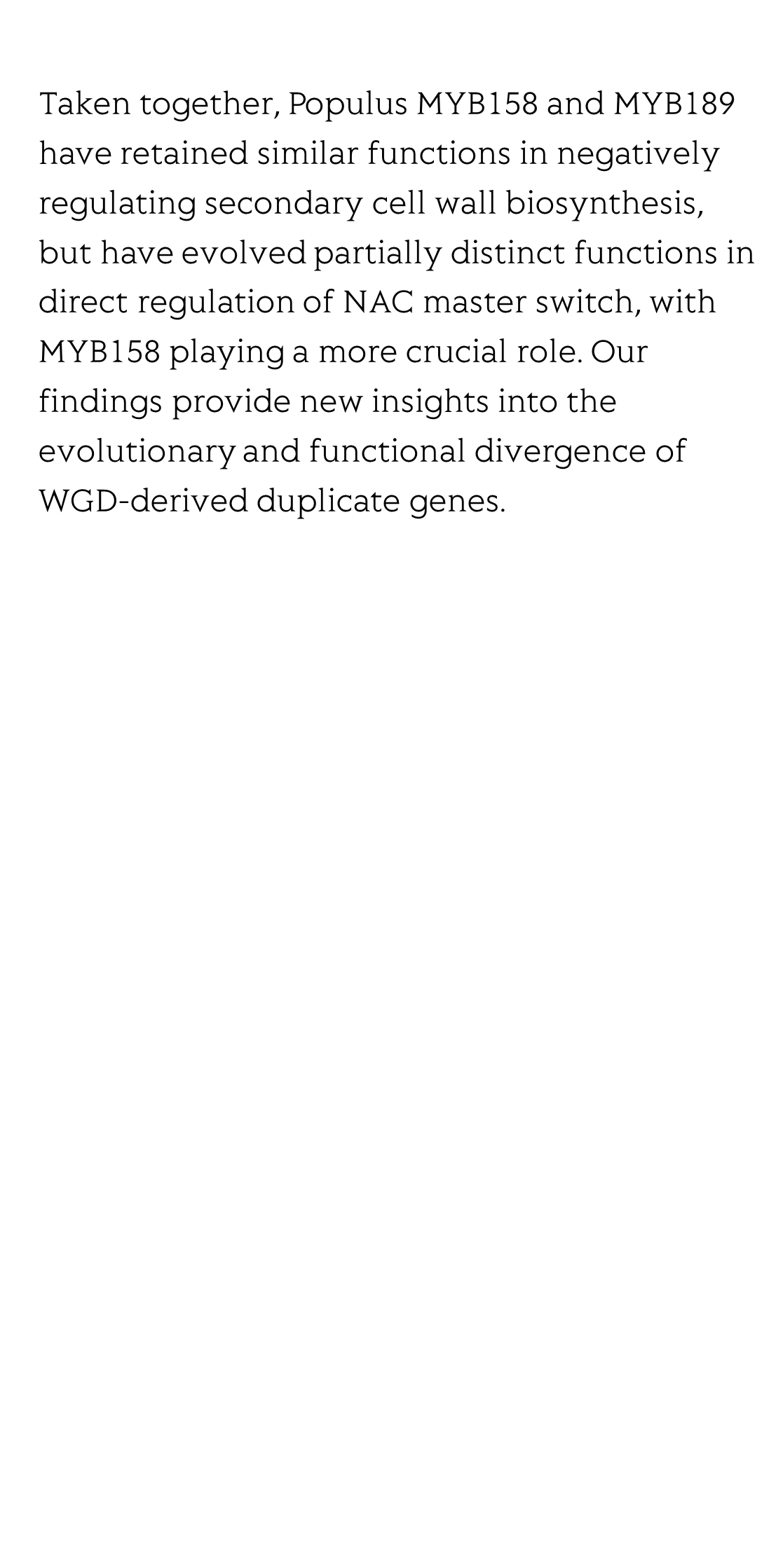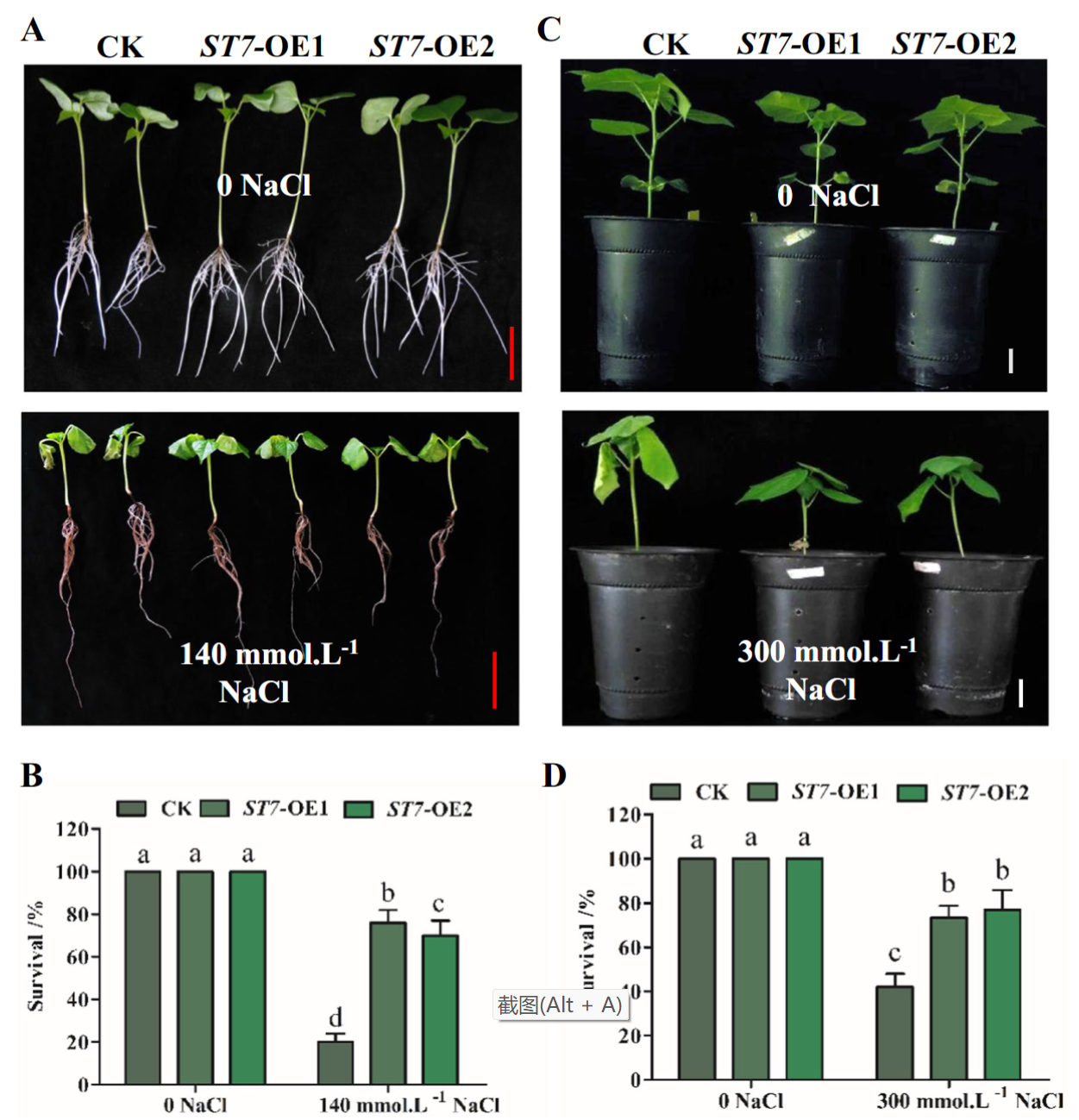(Peer-Reviewed) Evaluation of Thellungiella halophila ST7 for improving salt tolerance in cotton
ALI Mohsin ¹, NAZISH Tahmina ¹, JAVAID Ayesha ¹, ZHU Yonghong 朱永红 ², LI Jing 李静 ², ZHANG Huangyang 张换样 ², WU Jie 吴杰 ¹, XIANG Chengbin 向成斌 ¹, WU Shenjie 吴慎杰 ³, ALFATIH Alamin ¹
¹ Division of Molecular & Cell Biophysics, School of Life Sciences, Hefei National Science Center for Physical Sciences at the Microscale, University of Science and Technology of China, The Innovative Academy of Seed Design, Chinese Academy of Sciences, Hefei, Anhui, China
中国 安徽 合肥 中国科学技术大学 合肥微尺度物质科学国家研究中心 分子与细胞生物物理研究部 中国科学院种子创新研究院
² Institute of Cotton Research, Shanxi Agricultural University, Yuncheng, 044000, China
中国 运城 山西农业大学棉花研究所
³ College of Life Sciences, Shanxi Agricultural University, Taiyuan, 030031, China
中国 太原 山西农业大学生命科学学院
Background
Gossypium hirsutum (upland cotton) is one of the principal fiber crops in the world. Cotton yield is highly affected by abiotic stresses, among which salt stress is considered as a major problem around the globe. Transgenic approach is efficient to improve cotton salt tolerance but depending on the availability of salt tolerance genes.
Results
In this study we evaluated salt tolerance candidate gene ST7 from Thellungiella halophila, encoding a homolog of Arabidopsis aluminum-induced protein, in cotton. Our results showed that ThST7 overexpression in cotton improved germination under NaCl stress as well as seedling growth. Our field trials also showed that ThST7 transgenic cotton lines produced higher yield under salt stress conditions. The improved salt tolerance of the transgenic cotton lines was partially contributed by enhanced antioxidation as shown by diaminobenzidine (DAB) and nitrotetrazolium blue chloride (NBT) staining. Moreover, transcriptomic analysis of ThST7 overexpression lines showed a significant upregulation of the genes involved in ion homeostasis and antioxidation, consistent with the salt tolerance phenotype of the transgenic cotton.
Conclusions
Our results demonstrate that ThST7 has the ability to improve salt tolerance in cotton. The ThST7 transgenic cotton may be used in cotton breeding for salt tolerance cultivars.
A review on optical torques: from engineered light fields to objects
Tao He, Jingyao Zhang, Din Ping Tsai, Junxiao Zhou, Haiyang Huang, Weicheng Yi, Zeyong Wei Yan Zu, Qinghua Song, Zhanshan Wang, Cheng-Wei Qiu, Yuzhi Shi, Xinbin Cheng
Opto-Electronic Science
2025-11-25







